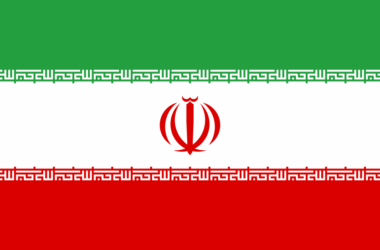The current geopolitical landscape, specifically the ongoing tensions between Israel and Iran, has once again thrown a spotlight on Nigeria’s economic vulnerabilities. As crude oil prices jump from $60 just a few weeks ago on June 1st to a current $75 a barrel, there’s a palpable, albeit dangerous, sense of relief settling over some segments of the Nigerian economy. This $15 surge, a direct consequence of external conflict, offers a temporary reprieve, but it also serves as a stark reminder: Nigeria cannot continue to hitch its economic wagon to the volatile star of global crises. It is time, unequivocally, for Nigeria to recalibrate its economy.
For decades, Nigeria has found itself in a paradoxical dance with crude oil. It is the lifeblood of our national revenue, yet its inherent price volatility leaves us constantly teetering on the brink. Every international tremor, every geopolitical spat, sends ripples through our budget, our development plans, and ultimately, the livelihoods of ordinary Nigerians. The current Israel-Iran situation is merely the latest iteration of a pattern we’ve seen repeatedly: a crisis erupts, oil prices spike, and Nigeria enjoys a brief, often misleading, period of increased earnings.
While the extra $15 per barrel might provide a much-needed boost to our foreign reserves and allow for some breathing room in budgetary allocations, relying on such external shocks is a fundamentally flawed and unsustainable economic strategy. It’s akin to a household budget that only balances when an unexpected bonus cheque arrives due to a neighbor’s misfortune. This approach breeds complacency, stifles innovation, and prevents the structural reforms essential for long-term economic stability and growth.
The dangers are manifold. Firstly, the current price surge is inherently unpredictable and temporary. Geopolitical tensions can de-escalate as quickly as they escalate, leaving us exposed once the “crisis premium” on oil evaporates. Secondly, it masks deeper, more systemic issues within our economy: low productivity in non-oil sectors, inadequate infrastructure, a challenging business environment, and an over-reliance on imports. When oil prices are high, the urgency to address these fundamental problems diminishes, only for them to resurface with greater intensity when prices inevitably fall.
Thirdly, this dependency creates a boom-and-bust cycle that hampers consistent planning and investment. Businesses struggle to forecast, and the government finds itself in a perpetual cycle of austerity measures followed by profligate spending. This instability discourages both domestic and foreign direct investment into the diversified sectors that could truly transform our economy.
It is time for a drastic recalibration. This means a relentless focus on diversifying our revenue base away from crude oil. This is not a new call, but the urgency has never been greater. We must aggressively pursue policies that:
Boost Agricultural Productivity: Invest in modern farming techniques, improve access to finance and markets for farmers, and strengthen agricultural value chains to ensure food security and export potential.
Industrialize Strategically: Foster local manufacturing through targeted incentives, infrastructure development, and access to affordable power. This includes nurturing small and medium-sized enterprises (SMEs) as the engine of job creation.
Harness the Digital Economy: Leverage our youthful, tech-savvy population to develop a thriving digital sector, attracting investment in IT, fintech, and e-commerce.
Strengthen Non-Oil Exports: Identify and promote other sectors with export potential, such as solid minerals, arts and crafts, and services.
Improve the Business Environment: Address issues of insecurity, corruption, regulatory bottlenecks, and energy deficits to attract and retain both local and foreign investment across all sectors.
Prudent Management of Oil Windfalls: Any additional revenue from higher oil prices must be channeled into strategic investments in infrastructure, education, and healthcare, rather than recurrent expenditure. A robust sovereign wealth fund could also serve as a buffer against future price shocks.
The $15 increase in crude oil prices, while seemingly beneficial, is a siren song that could lull us into a false sense of security. Nigeria’s economic future should not be dictated by conflicts in faraway lands. It must be built on the bedrock of a diversified, productive, and resilient economy that can withstand global shocks, rather than profit momentarily from them. The time for recalibration is not tomorrow, nor when the next crisis looms. It is now.








